Caring for your beloved feline companion goes beyond providing cuddles and playtime. Health challenges like Feline Herpes, a widespread viral infection among cats, require your attention to dietary needs.
In this guide, we focus on the vital decision of cat food for cats with Feline Herpes. This choice plays a pivotal role in safeguarding your cat’s health and proactively addressing the impact of Feline Herpes.
By opting for the right cat food, you actively contribute to your cat’s overall well-being and successful management of this condition.
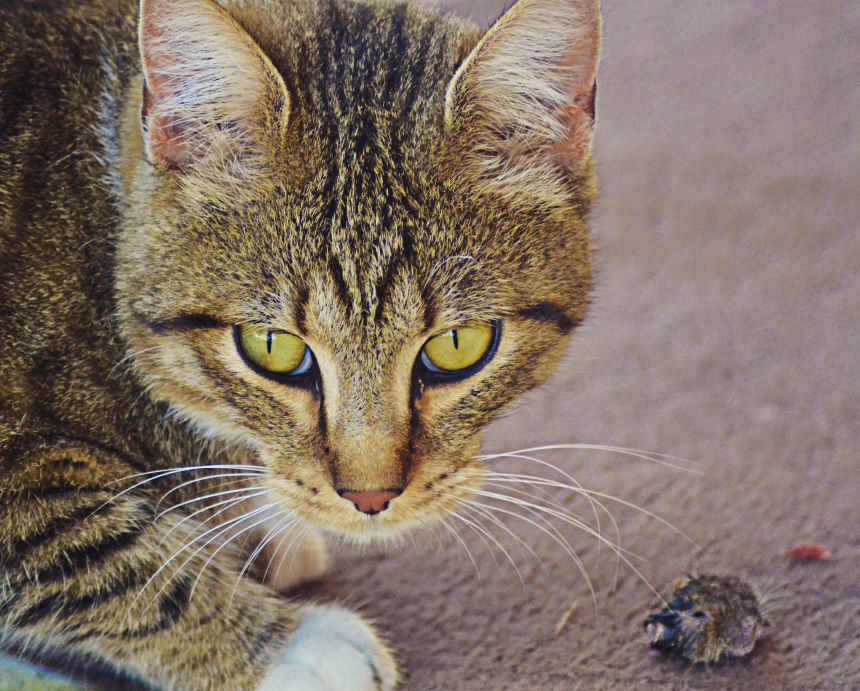
Understanding Feline Herpes and Its Impact
Feline Herpes, scientifically termed Feline Viral Rhinotracheitis (FVR), affects cats across age groups. Vulnerable demographics, including kittens, elderly cats, and those with weakened immune systems, are prone to severe symptoms. Though a definitive cure remains elusive, strategic management through care and nutrition can significantly enhance their quality of life.
The Significance of Diet for Cats with Feline Herpes
Nutrition plays a pivotal role for cats dealing with Feline Herpes, influencing their overall well-being. A suitable diet for these cats accomplishes the following:
- Strengthening the Immune System
Proper nutrition fortifies their immunity, aiding in more effective combat against infections.
- Hydration Maintenance
Sufficient moisture content in food prevents dehydration, especially crucial for cats with respiratory symptoms.
- Weight and Muscle Upkeep
The right nutrients ensure optimal weight and muscle mass.
- Skin and Coat Wellness
Nutrient-rich elements contribute to healthy skin and a gleaming coat.
- Enhancing Senses
A well-rounded diet enhances smell and taste senses, critical during nasal congestion.
- Pain and Inflammation Alleviation
Certain nutrients wield anti-inflammatory properties, aiding in comfort.
- Mood and Energy Enhancement
A strategic diet can positively impact mood and energy levels.
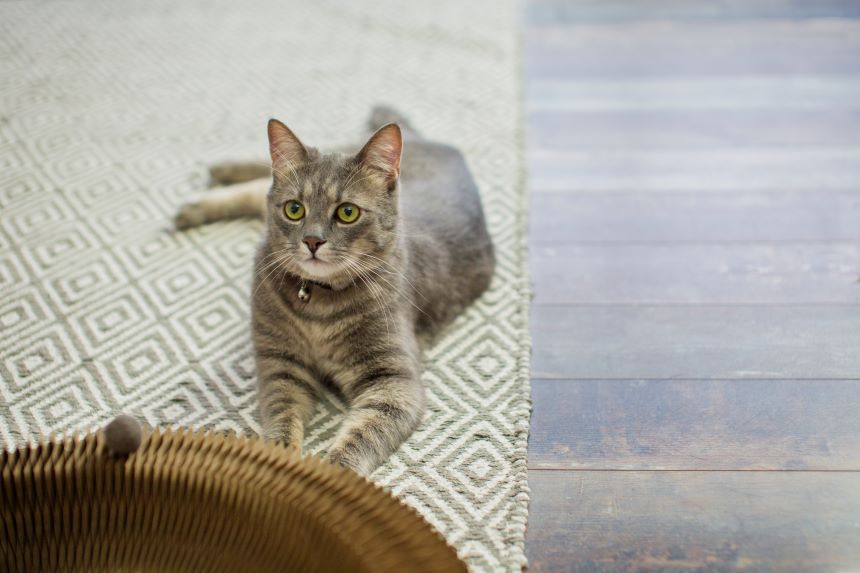
Key Considerations for Choosing Cat Food
Mindful selection of cat food for Feline Herpes cats entails the following factors:
- Quality Protein Source
Opt for high-quality animal protein such as chicken, turkey, fish, or beef as the primary ingredient. Plant-based proteins, like soy or corn, are not easily digestible for cats and should be avoided.
- Moisture Infusion
Cats with Feline Herpes require sufficient moisture. Choose wet or canned food to maintain moisture in nasal passages and eyes, avoiding dehydration and irritation.
- Essential Fats Inclusion
Omega-3 and omega-6 fatty acids found in healthy fats contribute energy, promote skin health, and possess anti-inflammatory attributes.
- Lysine Integration
Ensure your chosen cat food contains lysine—an amino acid known to ease Feline Herpes symptoms and mitigate outbreaks.
- Carbohydrate Selection
Opt for low-glycemic carbohydrates like sweet potatoes, peas, and carrots, offering essential fiber, antioxidants, and vitamins without causing blood sugar spikes.
Top Cat Food Recommendations
After meticulous research, these cat food options stand out:
- Tiki Cat Puka Puka Luau Succulent Chicken
High-protein, grain-free wet food containing chicken as the primary ingredient. Rich in moisture and amino acids, it aids immunity and hydration.
- Instinct Chicken Pate
A grain-free wet option featuring chicken and additional fruits and vegetables. Its smooth texture and savory taste are likely to appeal to cats with Feline Herpes.
- Merrick Purrfect Bistro Chicken Recipe Pâté
A gluten-free wet cat food rich in deboned chicken and omega fatty acids. It supports skin and coat health, perfect for cats with Feline Herpes.
- Weruva Cats in the Kitchen Chicken Frick ‘A Zee
A carrageenan-free option with chicken breast as the main ingredient. Enriched with essential fatty acids, it contributes to overall well-being.
- Fancy Feast Grilled Chicken Feast in Gravy
A wet option containing chicken broth, chicken, and liver. Added vitamins and minerals ensure a balanced diet.
Homemade Diet Options for Cats with Feline Herpes
While commercial cat foods provide convenience and specific formulations, some cat owners prefer preparing homemade diets.
However, before making this decision, consulting a veterinarian is crucial. Homemade diets can be tailored to include lysine-rich foods like turkey, chicken, and yogurt.
These diets should focus on immune-boosting ingredients while ensuring all nutritional requirements are met.
Feeding Approaches and Advice for Cats with Feline Herpes
When introducing new cat food, go gradual, especially for picky eaters. Observe their response and adjust as needed. A consistent feeding routine fosters security and healthier eating habits.
Additional Essential Tips
- Lysine Supplementation: Discuss lysine supplements, available in treats or powders, with your veterinarian for enhanced support.
- Portion Control: Avoid overfeeding by adhering to portion sizes suitable for your cat’s age, weight, and activity level.
- Allergen Avoidance: Ensure the chosen food doesn’t contain potential allergens, considering cats with heightened sensitivities.
- Transitioning Smoothly: Introduce new food gradually to avoid digestive issues. Mix new food with the current one, increasing the proportion gradually.
- Ensuring Hydration and Tips: Proper hydration is vital for Feline Herpes cats. Keep fresh water accessible. You can add water to kibble or incorporate wet food for added moisture.
- Signs of Progress: Monitoring Health: With proper care and diet, expect reduced sneezing, clearer eyes, and increased energy as positive signs.
- Stress-Free Environment: Stress worsens Feline Herpes symptoms. Minimize stress by providing hiding spots, playtime, and affection.
- Regular Vet Visits: Regular vet check-ups are vital. Vets monitor health, provide vaccinations, and suggest dietary adjustments when needed.
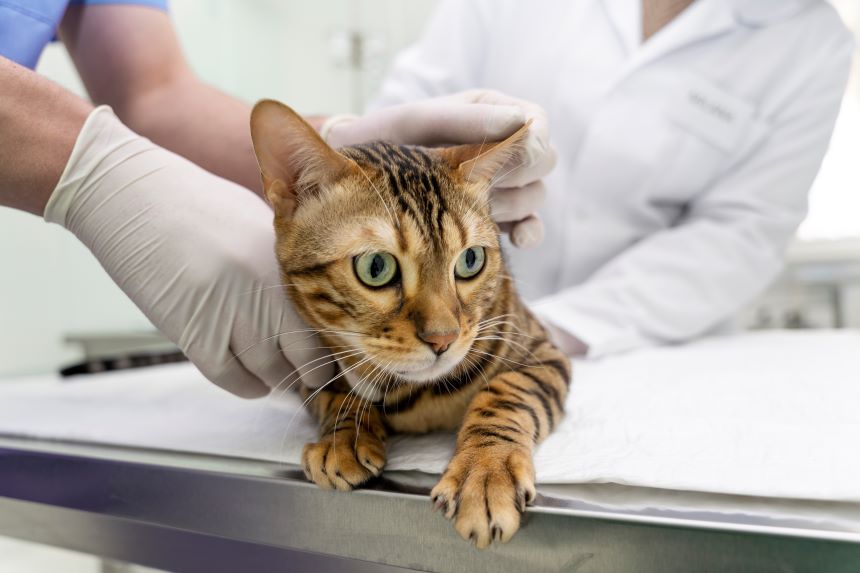
FAQs
Can cats with Feline Herpes coexist with others?
Feline Herpes is contagious and can be transmitted to other cats. If you have multiple cats, it’s essential to keep them separated during flare-ups to prevent the spread of the virus.
Can diet manage stress-triggered flare-ups?
While diet plays a role, overall stress management involves a holistic approach.
Are there foods to avoid giving cats with Feline Herpes?
Yes, steer clear of foods laden with artificial additives. Consult your vet for guidance.
What if symptoms worsen despite a proper diet?
Contact your vet promptly—escalating symptoms might indicate secondary infections.
Is there an immune booster for cats with herpes?
L-lysine, an amino acid, can help reduce the severity of the disease and the spread of the infection in some cats. Your veterinarian can provide a specific dosage recommendation.
Final Words
Prioritizing optimal nutrition for cats with Feline Herpes proactively manages their health. A balanced diet rich in lysine, omega-3 fatty acids, and antioxidants alleviates symptoms and enhances their quality of life.
Vet consultation tailors diet to individual needs. With mindful diet and environment, your cherished feline can thrive despite the challenges posed by this condition.
Read Next: Bison Cat Food: A Nutritious Choice for Cats | 2023
Keep Visiting Fooddforpets For More Blog Post Related To Pet Foods & Pet Care.

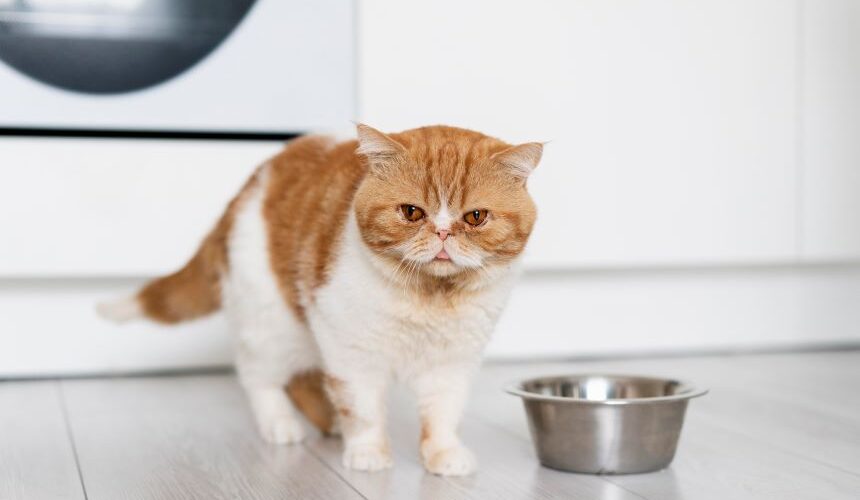
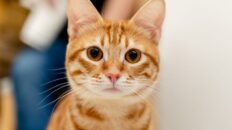

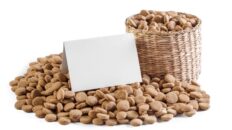
Add comment